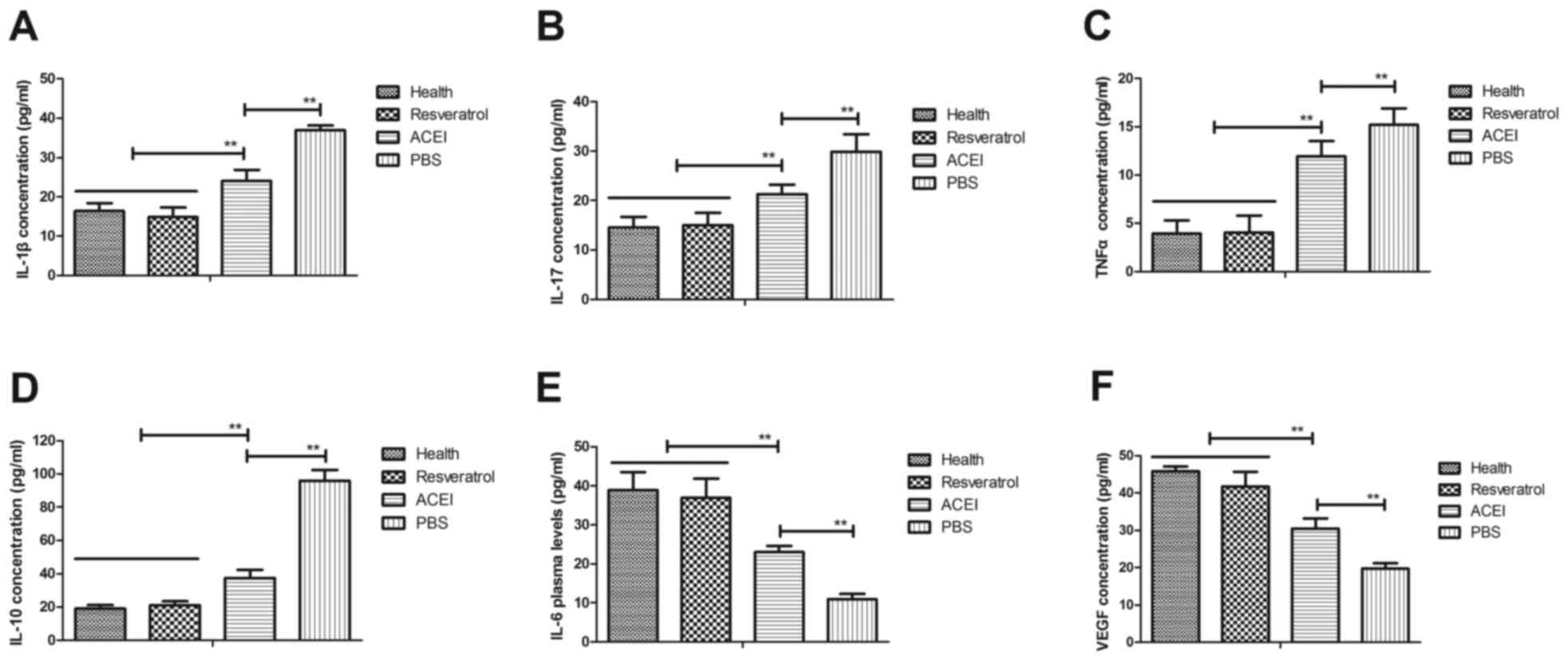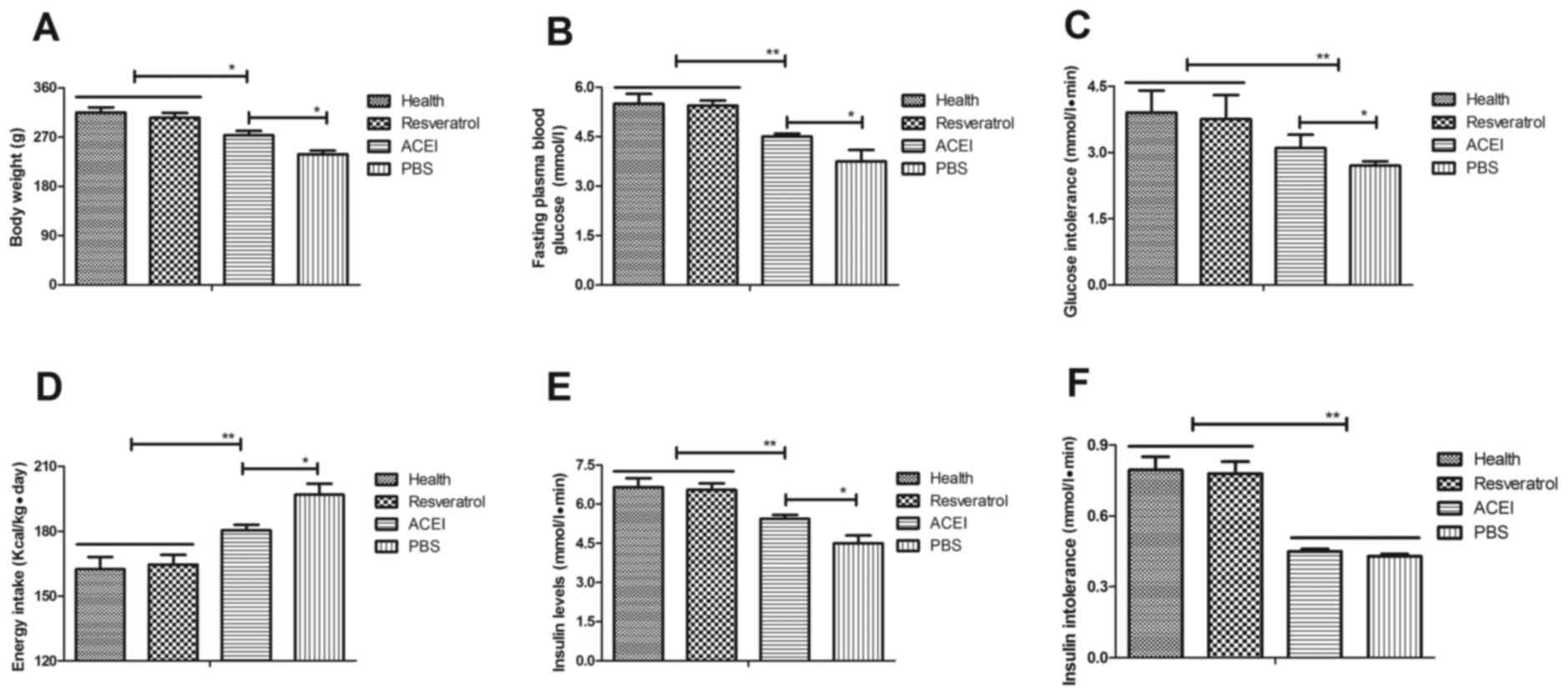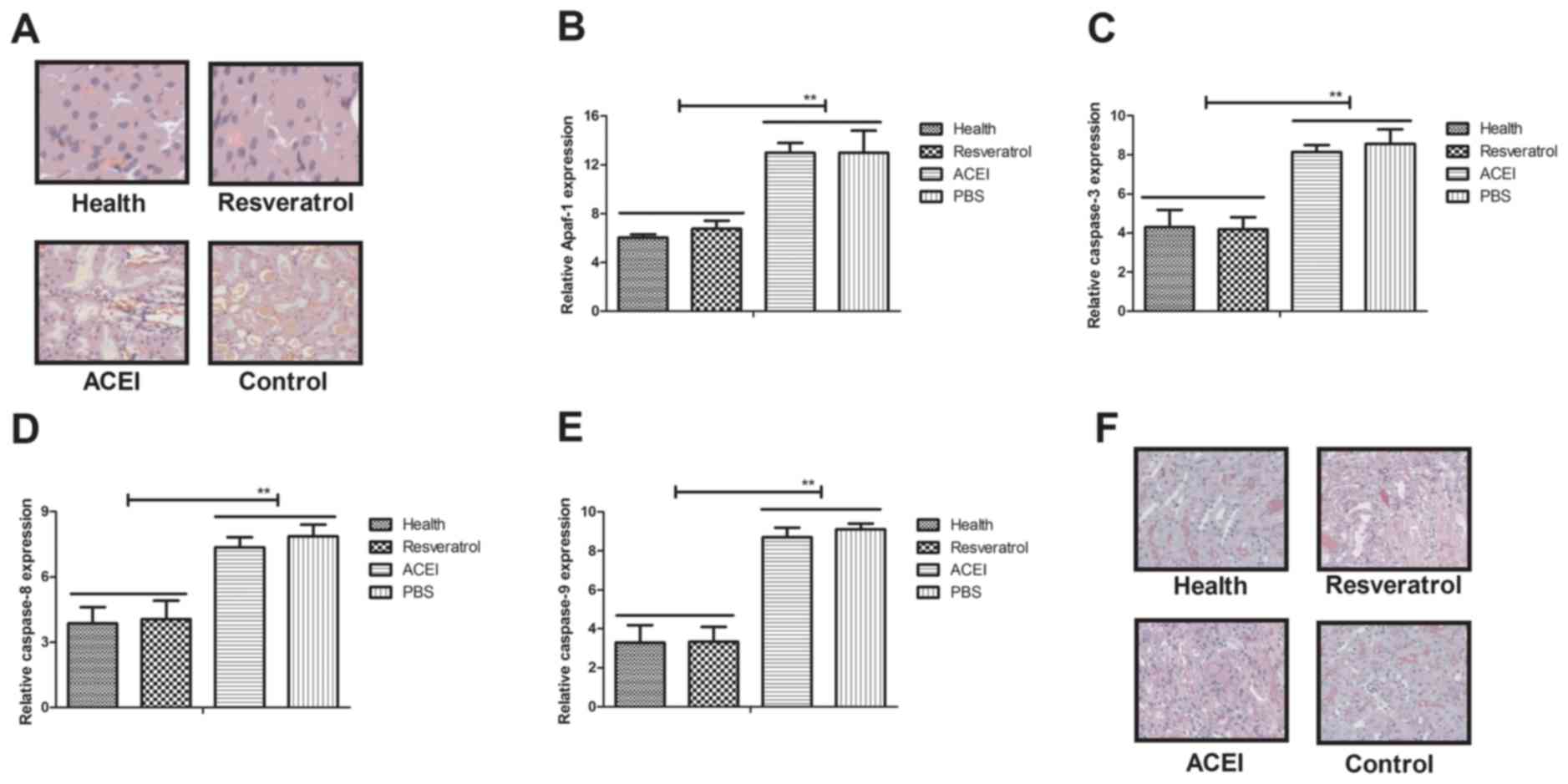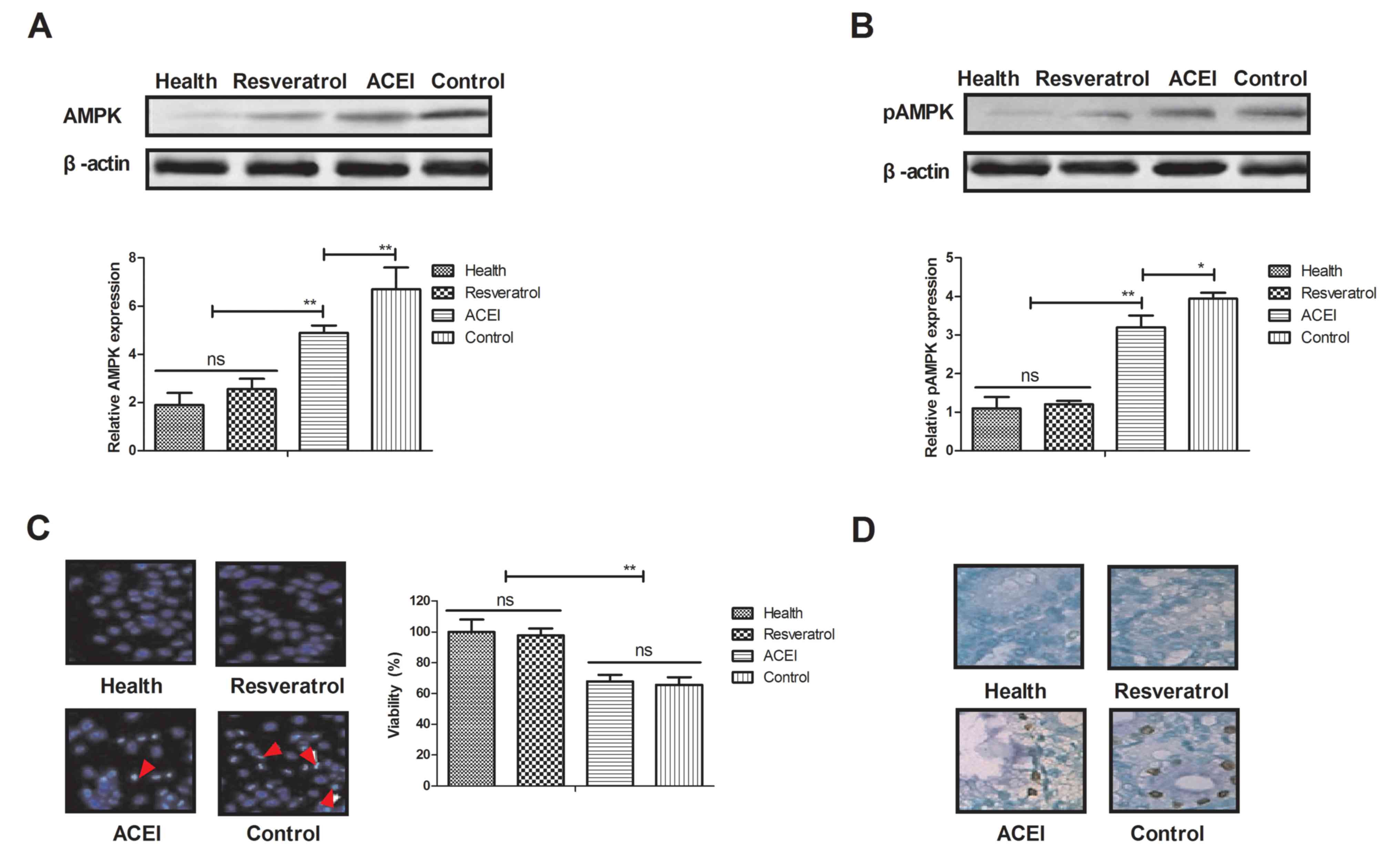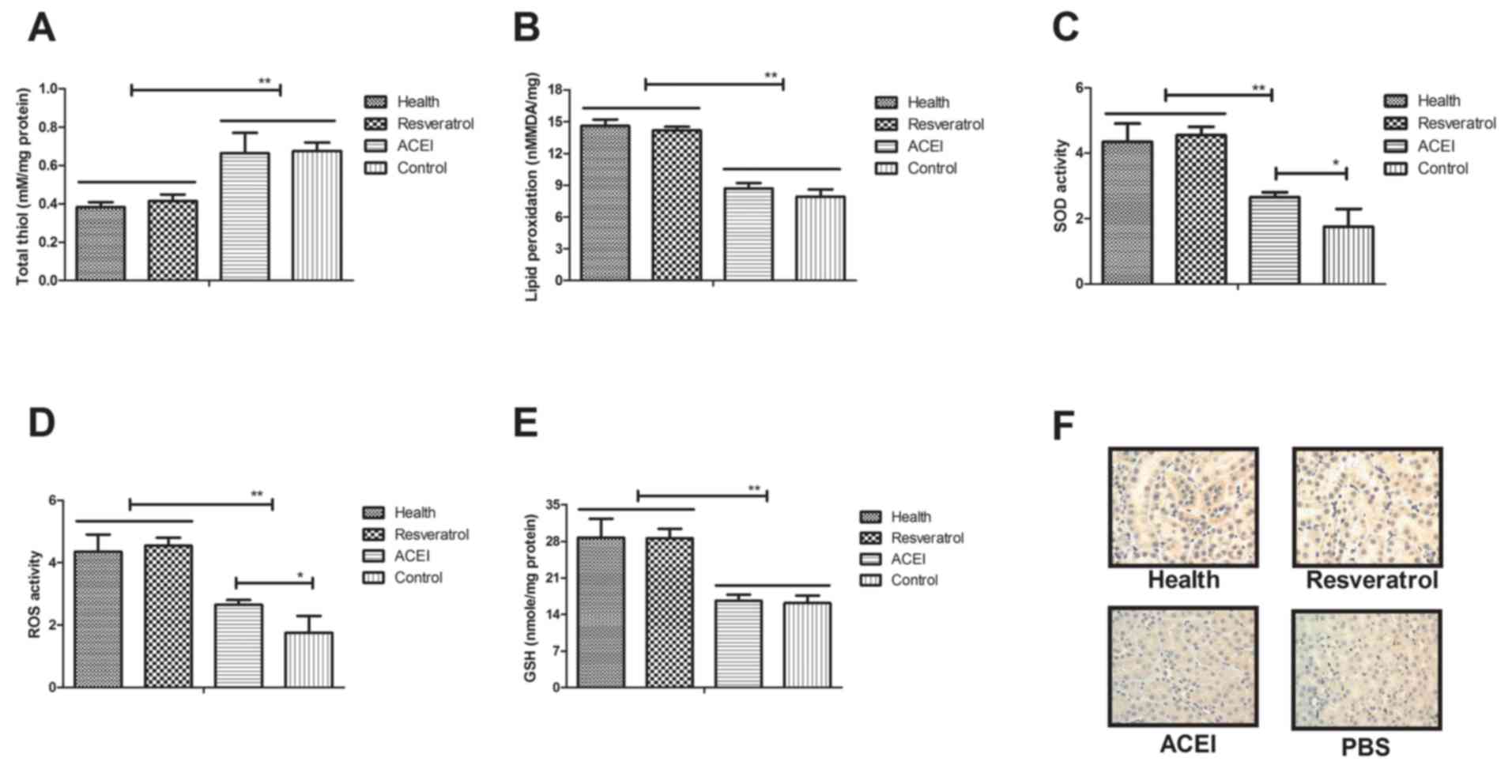|
1
|
Ibrahim NE, Gaggin HK, Rabideau DJ, Gandhi
PU, Mallick A and Januzzi JL Jr: Worsening renal function during
management for chronic heart failure with reduced ejection
fraction: Results from the Pro-BNP outpatient tailored chronic
heart failure therapy (PROTECT) study. J Card Fail. 23:121–130.
2016. View Article : Google Scholar : PubMed/NCBI
|
|
2
|
Sati A, Jha A, Moulick PS, Shankar S,
Gupta S, Khan MA, Dogra M and Sangwan VS: Corneal endothelial
alterations in chronic renal failure. Cornea. 35:1320–1330. 2016.
View Article : Google Scholar : PubMed/NCBI
|
|
3
|
Iwamuro M, Kanzaki H, Tanaka T, Kawano S,
Kawahara Y and Okada H: Lanthanum phosphate deposition in the
gastric mucosa of patients with chronic renal failure. Nihon
Shokakibyo Gakkai Zasshi. 113:1216–1222. 2016.(In Japanese).
PubMed/NCBI
|
|
4
|
Jain P, Kanagal-Shamanna R, Wierda W,
Ferrajoli A, Keating M and Jain N: Membranoproliferative
glomerulonephritis and acute renal failure in a patient with
chronic lymphocytic leukemia: Response to obinutuzumab. Hematol
Oncol Stem Cell Ther. 10:151–154. 2017. View Article : Google Scholar : PubMed/NCBI
|
|
5
|
Nakano S, Masuda K, Asanuma T and Nakatani
S: The effect of chronic renal failure on cardiac function: An
experimental study with a rat model. J Echocardiogr. 14:156–162.
2016. View Article : Google Scholar : PubMed/NCBI
|
|
6
|
Sathyanarayana V, Patel MT, Raghavan S and
Naresh D: Simultaneous bilateral femur neck fracture in a young
adult with chronic renal failure-a case report and review of
literature. J Orthop Case Reports. 5:24–26. 2015.PubMed/NCBI
|
|
7
|
Malekmakan L, Malekmakan A, Daneshian A,
Pakfetrat M and Roosbeh J: Hypertension and diabetes remain the
main causes of chronic renal failure in Fars Province, Iran 2013.
Saudi J Kidney Dis Transpl. 27:423–424. 2016. View Article : Google Scholar : PubMed/NCBI
|
|
8
|
Mao W, Zhang L, Zou C, Li C, Wu Y, Su G,
Guo X, Wu Y, Lu F, Lin Q, et al: Rationale and design of the
helping ease renal failure with bupi yishen compared with the
angiotensin II antagonist losartan (HERBAAL) trial: A randomized
controlled trial in non-diabetes stage 4 chronic kidney disease.
BMC Complement Altern Med. 15:3162015. View Article : Google Scholar : PubMed/NCBI
|
|
9
|
Takase H, Nakazawa A, Yamashita S,
Toriyama T, Sato K, Ueda R and Dohi Y: Pioglitazone produces rapid
and persistent reduction of vascular inflammation in patients with
hypertension and type 2 diabetes mellitus who are receiving
angiotensin II receptor blockers. Metabolism. 56:559–564. 2007.
View Article : Google Scholar : PubMed/NCBI
|
|
10
|
Varughese GI and Lip GY: Hypertension in
patients with type-II diabetes: Relation to urinary albumin
excretion, endothelial function and inflammation. J Hum Hypertens.
19:421–424. 2005. View Article : Google Scholar : PubMed/NCBI
|
|
11
|
Yamamoto S, Okada Y, Mori H, Nishida K,
Uriu K and Tanaka Y: Type 2 diabetes mellitus complicated by
hypertension in Japanese patients: Switching treatment from
high-dose angiotensin II receptor blockers to losartan plus
hydrochlorothiazide. Intern Med. 53:1283–1289. 2014. View Article : Google Scholar : PubMed/NCBI
|
|
12
|
Kalaitzidis R and Bakris G: Management of
hypertension in patients with diabetes: The place of angiotensin-II
receptor blockers. Diabetes Obes Metab. 11:757–769. 2009.
View Article : Google Scholar : PubMed/NCBI
|
|
13
|
Hasvold LP, Bodegård J, Thuresson M,
Stålhammar J, Hammar N, Sundström J, Russell D and Kjeldsen SE:
Diabetes and CVD risk during angiotensin-converting enzyme
inhibitor or angiotensin II receptor blocker treatment in
hypertension: A study of 15,990 patients. J Hum Hypertens.
28:663–669. 2014. View Article : Google Scholar : PubMed/NCBI
|
|
14
|
Daimon M, Kamba A, Murakami H, Takahashi
K, Otaka H, Makita K, Yanagimachi M, Terui K, Kageyama K, Nigawara
T, et al: Association between pituitary-adrenal axis dominance over
the renin-angiotensin-aldosterone system and hypertension. J Clin
Endocrinol Metab. 101:889–897. 2016. View Article : Google Scholar : PubMed/NCBI
|
|
15
|
Ficek J, Malyszko J and Chudek J: Renalase
and its role in the development of hypertension in patients with
chronic renal failure. Przegl Lek. 72:306–308. 2015.(In Polish).
PubMed/NCBI
|
|
16
|
Finlay E: Review: Most interventions for
preventing bone disease in chronic renal failure improved
biochemical outcomes. Arch Dis Child Edu Pract Ed. 97:402012.
View Article : Google Scholar
|
|
17
|
Kasacka I: Review article-involvement of
gastric APUD cells in chronic renal failure. Acta Histochem.
105:319–327. 2003. View Article : Google Scholar : PubMed/NCBI
|
|
18
|
Bos-Touwen I, Schuurmans M, Monninkhof EM,
Korpershoek Y, Spruit-Bentvelzen L, Ertugrul-van der Graaf I, de
Wit N and Trappenburg J: Patient and disease characteristics
associated with activation for self-management in patients with
diabetes, chronic obstructive pulmonary disease, chronic heart
failure and chronic renal disease: A cross-sectional survey study.
PloS One. 10:e01264002015. View Article : Google Scholar : PubMed/NCBI
|
|
19
|
Nair PA, Jivani NB and Diwan NG: Kyrle's
disease in a patient of diabetes mellitus and chronic renal failure
on dialysis. J Family Med Prim Care. 4:284–286. 2015. View Article : Google Scholar : PubMed/NCBI
|
|
20
|
Evans HM, Howe PR and Wong RH: Clinical
evaluation of effects of chronic resveratrol supplementation on
cerebrovascular function, cognition, mood, physical function and
general well-being in postmenopausal women-rationale and study
design. Nutrients. 8:1502016. View Article : Google Scholar : PubMed/NCBI
|
|
21
|
Toth P, Tarantini S, Tucsek Z, Ashpole NM,
Sosnowska D, Gautam T, Ballabh P, Koller A, Sonntag WE, Csiszar A
and Ungvari Z: Resveratrol treatment rescues neurovascular coupling
in aged mice: Role of improved cerebromicrovascular endothelial
function and downregulation of NADPH oxidase. Am J Physiol Heart
Circ Physiol. 306:H299–H308. 2014. View Article : Google Scholar : PubMed/NCBI
|
|
22
|
Beaudoin MS, Snook LA, Arkell AM, Simpson
JA, Holloway GP and Wright DC: Resveratrol supplementation improves
white adipose tissue function in a depot-specific manner in Zucker
diabetic fatty rats. Am J Physiol Regul Integr Comp Physiol.
305:R542–R551. 2013. View Article : Google Scholar : PubMed/NCBI
|
|
23
|
González-Rodríguez Á, Santamaría B,
Mas-Gutierrez JA, Rada P, Fernández-Millán E, Pardo V, Álvarez C,
Cuadrado A, Ros M, Serrano M and Valverde ÁM: Resveratrol treatment
restores peripheral insulin sensitivity in diabetic mice in a
sirt1-independent manner. Mol Nutr Food Res. 59:1431–1442. 2015.
View Article : Google Scholar : PubMed/NCBI
|
|
24
|
Gencoglu H, Tuzcu M, Hayirli A and Sahin
K: Protective effects of resveratrol against streptozotocin-induced
diabetes in rats by modulation of visfatin/sirtuin-1 pathway and
glucose transporters. Int J Food Sci Nutr. 66:314–320. 2015.
View Article : Google Scholar : PubMed/NCBI
|
|
25
|
Carrizzo A, Puca A, Damato A, Marino M,
Franco E, Pompeo F, Traficante A, Civitillo F, Santini L, Trimarco
V and Vecchione C: Resveratrol improves vascular function in
patients with hypertension and dyslipidemia by modulating NO
metabolism. Hypertension. 62:359–366. 2013. View Article : Google Scholar : PubMed/NCBI
|
|
26
|
Gulvady AA, Ciolino HP, Cabrera RM and
Jolly CA: Resveratrol inhibits the deleterious effects of
diet-induced obesity on thymic function. J Nutr Biochem.
24:1625–1633. 2013. View Article : Google Scholar : PubMed/NCBI
|
|
27
|
Guan Y, Cui ZJ, Sun B, Han LP, Li CJ and
Chen LM: Celastrol attenuates oxidative stress in the skeletal
muscle of diabetic rats by regulating the AMPK-PGC1α-SIRT3
signaling pathway. Int J Mol Med. 37:1229–1238. 2016. View Article : Google Scholar : PubMed/NCBI
|
|
28
|
Madsen A, Bjune JI, Bjorkhaug L, Mellgren
G and Sagen JV: The cAMP-dependent protein kinase downregulates
glucose-6-phosphatase expression through RORα and SRC-2 coactivator
transcriptional activity. Mol Cell Endocrinol. 419:92–101. 2016.
View Article : Google Scholar : PubMed/NCBI
|
|
29
|
Xu S, Lv Y, Zhao J, Wang J, Zhao X and
Wang S: Inhibitory effects of Shenkang injection and its main
component emodin on the proliferation of high glucoseinduced renal
mesangial cells through cell cycle regulation and induction of
apoptosis. Mol Med Rep. 14:3381–3388. 2016. View Article : Google Scholar : PubMed/NCBI
|
|
30
|
He Y, Chen W, Hu Y, Luo B, Wu L, Qiao Y,
Mo Q, Xu R, Zhou Y, Ren Z, et al: E. adenophorum induces cell cycle
and apoptosis of renal cells through mitochondrial pathway and
caspase activation in saanen goat. PloS One. 10:e01385042015.
View Article : Google Scholar : PubMed/NCBI
|
|
31
|
Livak KJ and Schmittgen TD: Analysis of
relative gene expression data using real-time quantitative PCR and
the 2(-Delta Delta C(T)) method. Methods. 25:402–408. 2001.
View Article : Google Scholar : PubMed/NCBI
|
|
32
|
Santos SS, Carmo AM, Brunialti MK, Machado
FR, Azevedo LC, Assunção M, Trevelin SC, Cunha FQ and Salomao R:
Modulation of monocytes in septic patients: Preserved phagocytic
activity, increased ROS and NO generation, and decreased production
of inflammatory cytokines. Intensive Care Med Exp. 4:52016.
View Article : Google Scholar : PubMed/NCBI
|
|
33
|
Hyde GD, Taylor RF, Ashton N, Borland SJ,
Wu HS, Gilmore AP and Canfield AE: Axl tyrosine kinase protects
against tubulo-interstitial apoptosis and progression of renal
failure in a murine model of chronic kidney disease and
hyperphosphataemia. PloS One. 9:e1020962014. View Article : Google Scholar : PubMed/NCBI
|
|
34
|
Alba A, Morales J, Ferrario M, Zehnder C,
Aguiló J, Zavala C, Herzog C, Calabran L, Contreras L, Espinoza R,
et al: Simultaneous kidney and pancreas transplantation (SKPT) in
patients with type 1 diabetes and chronic renal failure: Experience
in 12 patients in Chile. Rev Med Chil. 139:11–18. 2011.(In
Spanish). View Article : Google Scholar : PubMed/NCBI
|
|
35
|
Wittmann I, Molnár GA, Wagner L, Köszegi
T, Wagner Z, Laczy B, Tamaskó M, Markó L, Mohás M and Nagy J:
Single dose of acetylsalicylic acid in patients with Type 2
diabetes mellitus and/or chronic renal failure ameliorates anaemia
by decreasing the rate of neocytolysis. Acta Physiol Hung.
94:159–166. 2007. View Article : Google Scholar : PubMed/NCBI
|
|
36
|
Shamaeva EN, Shestakova MV, Kim IG,
Stoliarevich ES and Tomilina NA: Transplantation of the
kidney-optimal treatment of patients suffering from diabetes
mellitus type 1 with terminal chronic renal failure. Ter Arkh.
79:40–44. 2007.(In Russian). PubMed/NCBI
|
|
37
|
Shimizu M, Suzuki K, Tsuchida K, Kojima M,
Hiraishi H and Aso Y: Insulinoma in a patient with chronic renal
failure due to type 2 diabetes mellitus treated effectively with
diazoxide. Intern Med. 54:621–625. 2015. View Article : Google Scholar : PubMed/NCBI
|
|
38
|
Miyazato J, Horio T, Takiuchi S, Kamide K,
Sasaki O, Nakamura S, Nakahama H, Inenaga T, Takishita S and Kawano
Y: Left ventricular diastolic dysfunction in patients with chronic
renal failure: Impact of diabetes mellitus. Diabet Med. 22:730–736.
2005. View Article : Google Scholar : PubMed/NCBI
|
|
39
|
Majdan M, Kurowska M, Orlowska-Kowalik G
and Drop A: Ultrasonographic evaluation of kidneys in type-2
diabetes patients without overt nephropathy and with chronic renal
failure. Wiad Lek. 58:25–28. 2005.(In Polish). PubMed/NCBI
|
|
40
|
Ding DF, You N, Wu XM, Xu JR, Hu AP, Ye
XL, Zhu Q, Jiang XQ, Miao H, Liu C and Lu YB: Resveratrol
attenuates renal hypertrophy in early-stage diabetes by activating
AMPK. Am J Nephrol. 31:363–374. 2010. View Article : Google Scholar : PubMed/NCBI
|
|
41
|
Szkudelska K and Szkudelski T:
Resveratrol, obesity and diabetes. Eur J Pharmacol. 635:1–8. 2010.
View Article : Google Scholar : PubMed/NCBI
|
|
42
|
Thirunavukkarasu M, Penumathsa SV, Koneru
S, Juhasz B, Zhan L, Otani H, Bagchi D, Das DK and Maulik N:
Resveratrol alleviates cardiac dysfunction in
streptozotocin-induced diabetes: Role of nitric oxide, thioredoxin,
and heme oxygenase. Free Radic Biol Med. 43:720–729. 2007.
View Article : Google Scholar : PubMed/NCBI
|
|
43
|
Ungvari Z and Csiszar A: Resveratrol
confers endothelial protection in insulin-dependent diabetes
mellitus: Editorial to: ‘Resveratrol shows vasoprotective effect
reducing oxidative stress without affecting metabolic disturbances
in insulin-dependent diabetes of rabbits’ by F. Akar et al.
Cardiovasc Drugs Ther. 25:111–113. 2011. View Article : Google Scholar : PubMed/NCBI
|
|
44
|
Huang JP, Huang SS, Deng JY, Chang CC, Day
YJ and Hung LM: Insulin and resveratrol act synergistically,
preventing cardiac dysfunction in diabetes, but the advantage of
resveratrol in diabetics with acute heart attack is antagonized by
insulin. Free Radic Biol Med. 49:1710–1721. 2010. View Article : Google Scholar : PubMed/NCBI
|
|
45
|
Verheul MK, van Erp SJ, van der Woude D,
Levarht EW, Mallat MJ, Verspaget HW, Stolk J, Toes RE, van der
Meulen-de Jong AE, Hiemstra PS, et al: Anti-carbamylated protein
antibodies: A specific hallmark for rheumatoid arthritis.
Comparison to conditions known for enhanced carbamylation; renal
failure, smoking and chronic inflammation. Ann Rheum Dis.
75:1575–1576. 2016. View Article : Google Scholar : PubMed/NCBI
|
|
46
|
Medvedeva E, Berezin I, Surkova E, Yaranov
D and Shchukin Y: Galectin-3 in patients with chronic heart
failure: Association with oxidative stress, inflammation, renal
dysfunction and prognosis. Minerva Cardioangiol. 64:595–602.
2016.PubMed/NCBI
|
|
47
|
Keegan RF and Webb CB: Oxidative stress
and neutrophil function in cats with chronic renal failure. J Vet
Intern Med. 24:514–519. 2010. View Article : Google Scholar : PubMed/NCBI
|
|
48
|
El-Din Seif SH, El-Lakkany NM, Salem MB,
Hammam OA, Saleh S and Botros SS: Resveratrol mitigates hepatic
injury in rats by regulating oxidative stress, nuclear factor-kappa
B, and apoptosis. J Adv Pharm Technol Res. 7:99–104. 2016.
View Article : Google Scholar : PubMed/NCBI
|
|
49
|
Luo G, Li Z, Wang Y, Wang H, Zhang Z, Chen
W, Zhang Y, Xiao Y, Li C, Guo Y and Sheng P: Resveratrol protects
against titanium particle-induced aseptic loosening through
reduction of oxidative stress and inactivation of NF-κB.
Inflammation. 39:775–785. 2016. View Article : Google Scholar : PubMed/NCBI
|
|
50
|
Lieberthal W, Tang M, Lusco M, Abate M and
Levine JS: Preconditioning mice with activators of AMPK ameliorates
ischemic acute kidney injury in vivo. Am J Physiol Renal Physiol.
311:F731–F739. 2016. View Article : Google Scholar : PubMed/NCBI
|
|
51
|
Wang XH, Zhu L, Hong X, Wang YT, Wang F,
Bao JP, Xie XH, Liu L and Wu XT: Resveratrol attenuated
TNF-α-induced MMP-3 expression in human nucleus pulposus cells by
activating autophagy via AMPK/SIRT1 signaling pathway. Exp Biol Med
(Maywood). 241:848–853. 2016. View Article : Google Scholar : PubMed/NCBI
|
|
52
|
Yuan Y, Xue X, Guo RB, Sun XL and Hu G:
Resveratrol enhances the antitumor effects of temozolomide in
glioblastoma via ROS-dependent AMPK-TSC-mTOR signaling pathway. CNS
Neurosci Ther. 18:536–546. 2012. View Article : Google Scholar : PubMed/NCBI
|
|
53
|
Hwang JT, Kwak DW, Lin SK, Kim HM, Kim YM
and Park OJ: Resveratrol induces apoptosis in chemoresistant cancer
cells via modulation of AMPK signaling pathway. Ann N Y Acad Sci.
1095:441–448. 2007. View Article : Google Scholar : PubMed/NCBI
|















